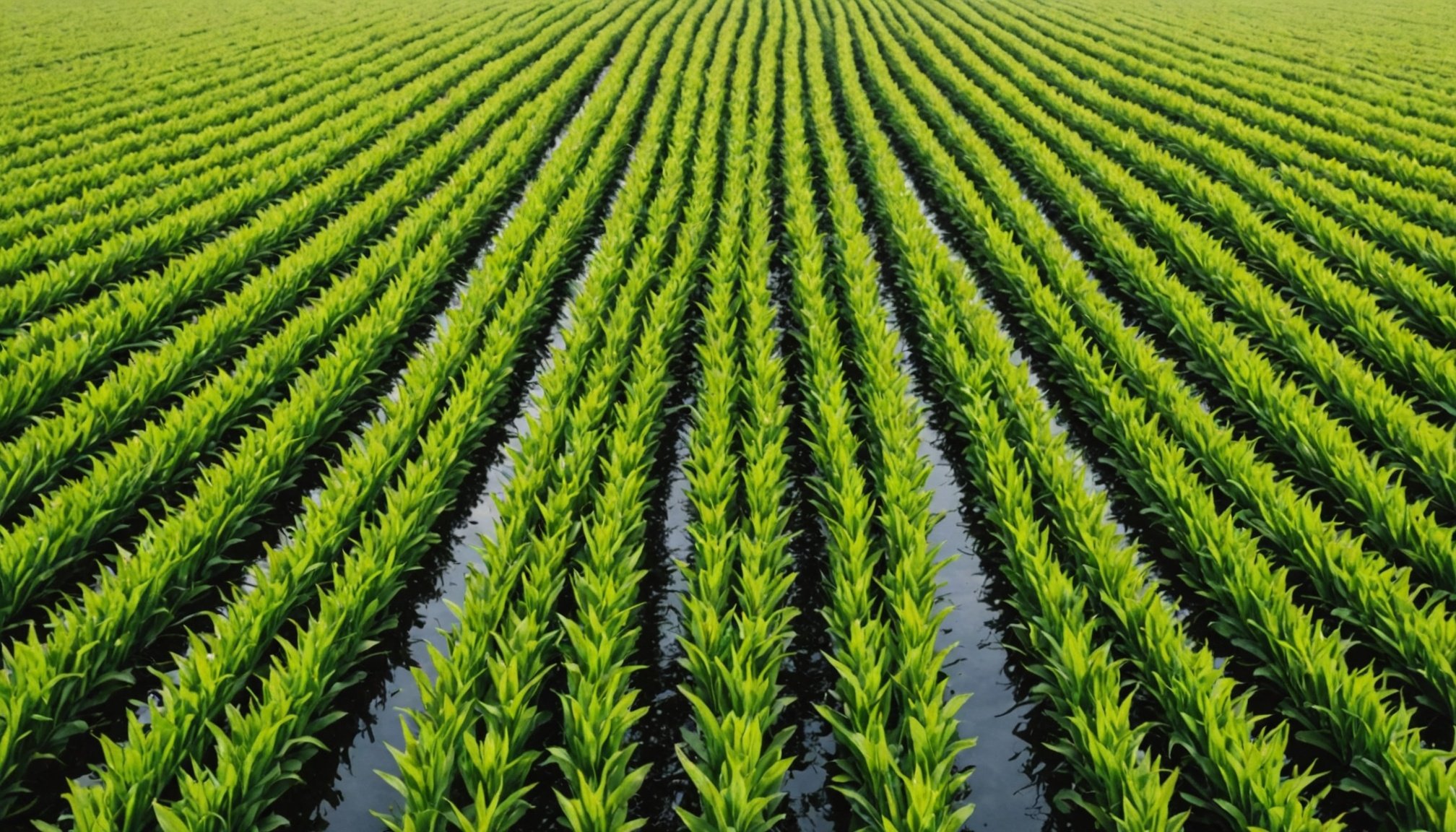Overview of Water Management Challenges in UK Farming
In UK farming, water management challenges are becoming increasingly significant as agricultural demands intensify. The current state of water resources reveals a strained system, where water is not only essential for crop irrigation but also central to livestock farming. However, farmers encounter several hurdles, such as fluctuating rainfall patterns and water scarcity, complicating effective management.
One of the key challenges is balancing water supply with demand, particularly during dry seasons. Farmers struggle with outdated infrastructure, leading to inefficient water usage. The distribution is also hampered by uneven precipitation across regions. This situation leads to some areas experiencing floods, while others suffer from droughts.
Also to read : Top Strategies for Cutting Carbon Footprints in UK Logistics: Effective Solutions for a Greener Future
Climate change further exacerbates these issues by altering weather patterns. With increasingly unpredictable conditions, water availability becomes a pressing concern. Climate models predict not only a rise in temperatures but also more frequent extreme weather events, disrupting the traditional farming calendar. This means UK agriculture must adapt to sustain production levels.
Sustainability issues arise as efforts to conserve water face obstacles. Solutions, such as improving irrigation efficiency and employing water-saving technologies, are crucial. These measures ensure that water resources are preserved while maintaining agricultural productivity, highlighting the urgent need for innovative approaches to overcome these water management challenges.
Also to discover : Revolutionizing uk dining: a comprehensive guide to adopting sustainable seafood practices for restaurant chains
Innovative Technologies in Water Management
Water management technologies are revolutionising the way we approach agriculture by integrating smart irrigation systems and precision farming tools. These innovations ensure efficient water use, reducing waste and promoting sustainability in farming practices.
Smart irrigation, at its core, uses sensors to monitor soil moisture levels and weather conditions to optimise water delivery. This technology adjusts itself in real-time, ensuring crops receive the right amount of water precisely when they need it. By doing so, it minimises the overuse of water resources, contributing to significant savings and protecting the environment.
Precision farming takes this a step further by incorporating technology such as GPS and data analysis to manage field variations. These tools enable farmers to apply resources, including water, with pinpoint accuracy. By analysing data on soil moisture, nutrient levels, and crop health, precision farming maximises efficiency and crop yields.
Instances of successful technology implementation highlight these approaches’ effectiveness. For example, in California, combining smart irrigation systems and precision farming tools led to a reported 20% reduction in water use while improving overall crop performance. This showcases the transformative potential these technologies offer in modern agriculture, ensuring farms can be both profitable and environmentally friendly.
Best Practices for Sustainable Water Usage
In agriculture, sustainable practices are essential for conserving water and ensuring long-term productivity. Embracing efficient agricultural techniques is vital in optimizing water use for crop production. One approach is precision irrigation, which delivers water directly to the roots of plants, minimizing wastage. By using technology to monitor soil moisture levels, farmers can adjust irrigation schedules to match the exact needs of their crops.
Water conservation is also closely linked to maintaining soil health. Healthy soils have a greater capacity to retain water, reducing the need for additional irrigation. Incorporating organic matter, such as compost, into the soil can significantly enhance its structure and water-holding capacity. Crop rotation and cover cropping are additional strategies that contribute to soil vitality, which in turn promotes water retention.
Community-led initiatives are making significant strides in water management. These grassroots efforts often involve local stakeholders in developing and implementing strategies that suit their specific environmental contexts. Examples include rainwater harvesting projects and the establishment of local water committees. Such initiatives not only conserve water but also empower communities, ensuring that sustainable practices are collectively adopted and maintained. By sharing knowledge and resources, communities can enhance their resilience against water scarcity, benefiting the agricultural sector and the environment alike.
Policy Framework and Support Systems
Navigating the landscape of agricultural policies in the UK can feel daunting, yet understanding these can empower farmers to adopt sustainable practices with greater confidence. The UK government has made a concerted effort to integrate sustainable water management into its national policies, seeking to balance agricultural needs with environmental conservation.
Government bodies and related organizations play a crucial role in this endeavor. They provide support systems through comprehensive guidelines and resources aimed at helping farmers implement sustainable practices effectively. These institutions not only offer technical assistance but also actively engage in educating farmers about the long-term benefits of sustainable water use.
To further bolster these initiatives, a variety of funding opportunities and grants are available to support farmers in their quest for sustainability. These financial aids encourage experimentation with innovative techniques that conserve resources while maintaining productivity. Whether through the Countryside Stewardship Scheme or other grants, farmers can secure funding to implement practices that reduce water wastage and enhance eco-friendly operations.
Embracing these support systems ensures that the environmental and economic benefits reach their full potential, driving the agricultural sector towards a more sustainable future. This balance is key to fostering a thriving, sustainable agricultural industry.
Case Studies of Successful Water Management
Understanding how water management is currently being implemented in the UK farming sector provides invaluable insights. These case studies showcase successful implementations that can inspire and guide other farms.
One notable example involves a farm in the South West of England employing innovative rainwater harvesting. By constructing large storage facilities, they collect and recycle rainwater, reducing dependency on external sources. These case studies highlight the potential for water conservation and cost-cutting.
Another farm has implemented advanced irrigation systems driven by weather predictions, which optimise water use. This predictive method has proven to be efficient, conserving water without compromising crop yield. Lessons from such farms illustrate the importance of investing in technology to enhance water management.
Furthermore, these successes hint at scalability, suggesting these strategies could benefit a broader range of UK farming operations. Sharing these UK farming examples encourages wider adoption and gradual improvements in water use efficiency.
These case studies emphasise that while every farm’s needs are unique, the core principles of successful implementations—like data-driven decision-making and proactive resource management—could transform water use across the UK agriculture sector, ensuring sustainable practices for future generations.
Future Trends in Water Management for Farming
In shaping the future of water management, predictions suggest several emerging trends will revolutionise how water is used in agriculture. The focus is on enhancing sustainability in agriculture to meet rising environmental demands. A key prediction involves the increased utilisation of smart irrigation systems. These systems monitor soil moisture in real-time, optimising water use efficiency and reducing wastage. By integrating advanced IoT technology, farmers can adapt to variable weather patterns, conserving water resources effectively.
Innovations on the horizon include the application of drones and satellite technology to provide precision insights into crop water needs. This technological advancement allows the tailored application of water, promoting resources conservation and improving crop yields.
Farmers and communities play a vital role in shaping future strategies for water management. Collaborative efforts in data sharing and the adoption of new technologies at grassroots levels are crucial. Community-driven water management initiatives empower local stakeholders, leading to sustainable practices that can combat water scarcity effectively.
With these trends, it’s evident that for the future of water management in farming to flourish, collective responsibility and forward-thinking innovations must align harmoniously. By embracing these emerging trends, agriculture can achieve a sustainable and water-efficient future.






